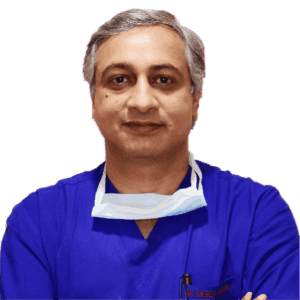Advanced Laparoscopic & General Surgery

The general surgery is one of the broadest healthcare specialties in medicine. Specialized general surgeons can diagnose and treat a complete spectrum of diseases via different body systems. This involves conditions requiring surgical treatment for the areas, such as:
- Small intestine
- Stomach
- Colon
- Appendix
- Spleen
- Gallbladder
- Liver
- Pancreas
- Adrenal glands
- Skin and soft tissue
- Thyroid and parathyroid
Besides, the general surgeons perform some emergency surgeries to treat in-office hemorrhoid treatment, hernia repairs, surgical colon exploration and gallbladder removals.
Advanced Laparoscopic Surgery
Advanced laparoscopic surgery is a minimally invasive surgery. In this procedure, the surgeon usually operates through tiny incisions made in the skin instead of the large incision for performing an open operation.
What makes this type of surgery more advanced is the type of procedures that general surgeons perform with this technique. For instance, foregut surgery, liver resections, colon surgery, total gastrectomies and other major operations are done laparoscopically by general surgeons.
The advantages of advanced laparoscopic surgery are that it’s less painful, minimal to no scarring and quicker recovery. However, the best surgical method is figured out based on a specific patient’s condition. So, make sure to consult your surgeon about the treatment that is right for you.
Surgery Types In Laparoscopic
With technical advances nowadays, surgery doesn’t need large incisions as it was done in the past. There are many surgical procedures like:
Open surgery: It means that the surgeon will cut the skin and tissues to fully view and access the organs and structures involved. For example, open surgery requires the removal of organs like kidneys or gall bladder.
Minimally invasive surgery: This advanced type of surgical technique doesn’t require a large incision. It is a relatively new technique of recuperating a patient with less pain. However, all conditions are not suitable for treatment with minimally invasive surgery. The common surgery methods that fall under minimally invasive surgery are:
- Endoscopy
- Laparoscopy
- Cystoscopy
- Bronchoscopy
- Arthroscopy
- Gastroscopy
- Sigmoidoscopy
- Laryngoscopy
- Hysteroscopy
Besides using conventional surgical knives for surgery, the open and minimally invasive surgeries can also involve alternative techniques (depending on the procedure), such as:
- Electrosurgery
- Laser surgery
Advantages of Minimal Access (Laparoscopic) Surgery
- Smaller Incisions: Unlike traditional surgery that requires large incisions, the new minimally invasive surgery depends only on small incisions for inserting cameras, thin tubes or other surgical tools for treatment.
- Less Pain: This procedure is less painful and discomforting during and after the treatment.
- Shorter Hospital Stay: The patients can go home sooner and also return to work quickly after this procedure.
- Faster Recovery: Since the size of the incision is small, you’ll heal faster than the open surgery.
- Less Scarring: Minimally invasive surgery needs small incisions. This means there will be very few noticeable scars.
Increased Accuracy: Compared to traditional open surgery, minimally invasive surgery offers higher accuracy and it utilizes advanced equipment and tools.
Some Common and Advanced Procedures of Laparoscopic Surgery
The laparoscopic surgical procedures are becoming popular rapidly. The two common benefits of these procedures are reduced postoperative pain and reduced hospitalization and recovery compared to the open surgical procedure.
Currently, laparoscopic cholecystectomy is the most common procedure used for most patients suffering from symptomatic gallstones. Likewise, other stones in the bile duct can also be retrieved with laparoscopic techniques.
Laparoscopic appendectomy is another reasonable alternative with advanced diagnostic capabilities compared to the open appendectomy. Besides, laparoscopic antireflux procedures are used for the repair of inguinal hernias and bowel resections. However, its long-term results are unavailable currently.
Many diagnostic and palliative medical procedures can be done with laparoscopic techniques, as they offer effective postoperative management with less perioperative morbidity.
Even the solid organ resections could be undertaken safely using laparoscopy technique in the selected patients. Due to all the benefits, the demand for laparoscopic operations is increasing broadly today.
Why One Should Choose SCI Internatinal Hospital
- World-renowned care at one place: We specialize in several medical treatments and offer expert care under one roof.
- Specialists in minimally invasive surgery: Our team uses advanced minimally invasive surgical techniques to offer you the best results.
- Ease of scheduling: We understand the need of seeking medical care quickly, so we schedule appointments quickly.
- Coordinated care focus: We aim to offer the best operative and comprehensive care to let you restore the quality of life.
- Conservative approach: Most of the time, we can cure patients without open surgical treatments, using therapeutic injections, osteopathic treatments, physical therapy and other non-surgical treatments.
Best Laparoscopic Surgeon in Delhi
Dr. Arwind Kumar is one of the best laparoscopic surgeons in Delhi. With more than 14 years of experience in dealing with Advanced Laparoscopic surgery, he has operated many patients successfully. He has even operated many complicated cancer cases laparoscopically, including esophagectomy and Whipple’s (pancreatoduodenectomy). He currently works as a GI and Consultant Advanced Laparoscopic Surgeon at PSRI (Pushpawati Singhania Research Institute) and Dharmshila Cancer Institute. Do book an appointment to consult him for treating your condition laparoscopically.
Frequently Asked Questions About Laparoscopic Surgery
Our Doctors
Image Gallery
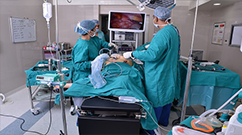
OT During Surgery
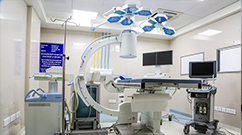
OT
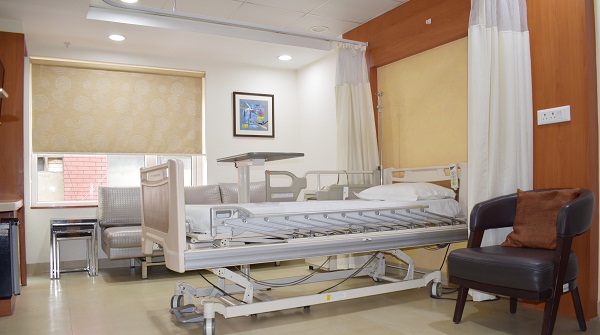
Single Room
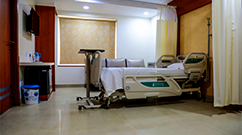
Deluxe Room
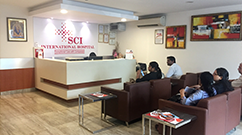
Patient Waiting Area

Patient Waiting Area
Doctor's Talk And Patient Testimonials
Consult Now
Our Services
Contact Info
- M 4, Near M Block Market, Greater Kailash-1, New Delhi, 110048



